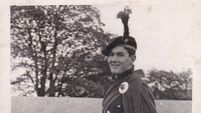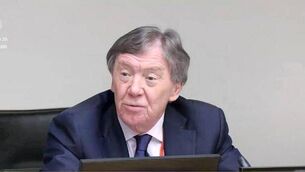Man found not guilty of historic sexual abuse at Waterford trial

The case was heard at Waterford Courthouse.
A man in his 70’s has been found not guilty of historical sexual abuse.
The man stood trial at Waterford Circuit Court before Judge Eugene O’Kelly, charged with 53 counts of sexual abuse ranging from dates between 1967-1976. However, the number of charges was reduced to 26 during the course of the trial.
The allegations of abuse came from two women who would have been children at the time noted. They alleged that the man, alongside his brother who is now deceased, regularly abused them within their family home.
The witnesses were asked about the specific times and dates of the allegations. One woman replied: “I don’t remember, I was a child.” The defendant gave evidence and emphatically denied all allegations of abuse. He spoke about visiting the complainants when they were at the Good Shephard Orphanage and of how they attended his wedding.
During their cross-examination by Mr Colman Cody, both women confirmed that they were sent to live with their grandparents after the dissolution of their parent’s relationship. The women spoke about their dysfunctional relationship with their father, referring to him as a ‘monster’.
The first complainant told the court that she found it very difficult to remember details from her childhood, including dates.
Under questioning by Conor O’Doherty BL, acting for the state, the complainant gave an outline of the events.
She said she was born in the UK, after which her family moved to Australia.
She is one of five children who spent time in an orphanage in Australia.
When her mother left the family home, her father brought her and her siblings to Ireland, where they lived with their grandparents.
She said her two uncles also lived in the house.
While living in the house, the complainant told the court that her uncles would take her and her sister to their grandmother’s bedroom and force them to perform oral sex on him.
The complainant told the court that after she disclosed the abuse to her grandmother, she and her siblings were sent to the Good Shepard Orphanage.
“She basically said it was our fault,” said the complainant.
The complainant said that she married after she left the institution but had since separated.
She has received counselling but didn’t feel it benefited her.
She told the court that she was coming forward because she knew that her uncle worked with vulnerable adults, and she was concerned for their safety.
Acting for the defendant Colman Cody BL, put it to the complainant that she was coming forward due to a dispute over a house in the UK which had belonged to her father before his death.
The complainant rejected the accusation and said that her father had been dead for several years before she learned anything about his death or estate. She denied it had any bearing on her claims, saying that she ‘couldn’t care less’ about the matter. Mr O’Doherty clarified that the complainant had applied to a redress scheme in 2003 and had referenced the abuse in her application. The women experienced abuse within the residential institution.
The second complainant told the court that she did not remember being abused at the same time as her sister but sometimes had flashbacks about her grandmother's bedroom.
She described being forced to perform oral sex or touch another uncle’s genitals in a cubby hole off the family’s sitting room.
She said the two men would sometimes “take turns,” but one was “worse” than the other.
She said she thought her grandmother knew and had sent them away.
“It got too much for her, but I think she knew,” said the complainant.
Neither women could remember exact times but estimated they were under 10 years of age when the alleged abuse began.
The second complainant said that after she was placed in the institution, her uncle would try to “lure her away,” threaten her and give her money for the abuse he allegedly inflicted.
The second complainant had also married, had children and separated. Her new partner encouraged her to come forward, but she had been previously approached by a Garda investigating claims about her uncle.
Nothing had come of that case.
The defendant told the court that his older brother, father of the complainants, sent the girls to the orphanage because they had ‘fallen behind’ in their learning.
A former partner of one of the witnesses was called to give evidence. He told the court that he had known the witness since their teens and was told about the alleged abuse when they were in their late teens. At the turn of the century, the man wrote a book that was understood to have been inspired by the witness. The defendant contacted a solicitor about the possibility of defamation in the book. The solicitor informed him that since he was not named in the book, there was no legal recourse.
She said: “I’ve struggled everyday of my life because of what they did to me.” The court heard that the initial claims were made to Gardaí by the witnesses in 2016 and 2019, respectively. One witness had told her counsellor in 2004.
The defendant told the court that the family home was filled with people and children, and that if any abuse had occurred it would have been witnessed. He said that his mother, the girl’s grandmother, loved them and took care of them. He said: “Very few women would do what she had done. They loved my mother and my mother loved them.”
The jury deliberated over a number of days before returning unanimous verdicts of "not guilty" on each count.






